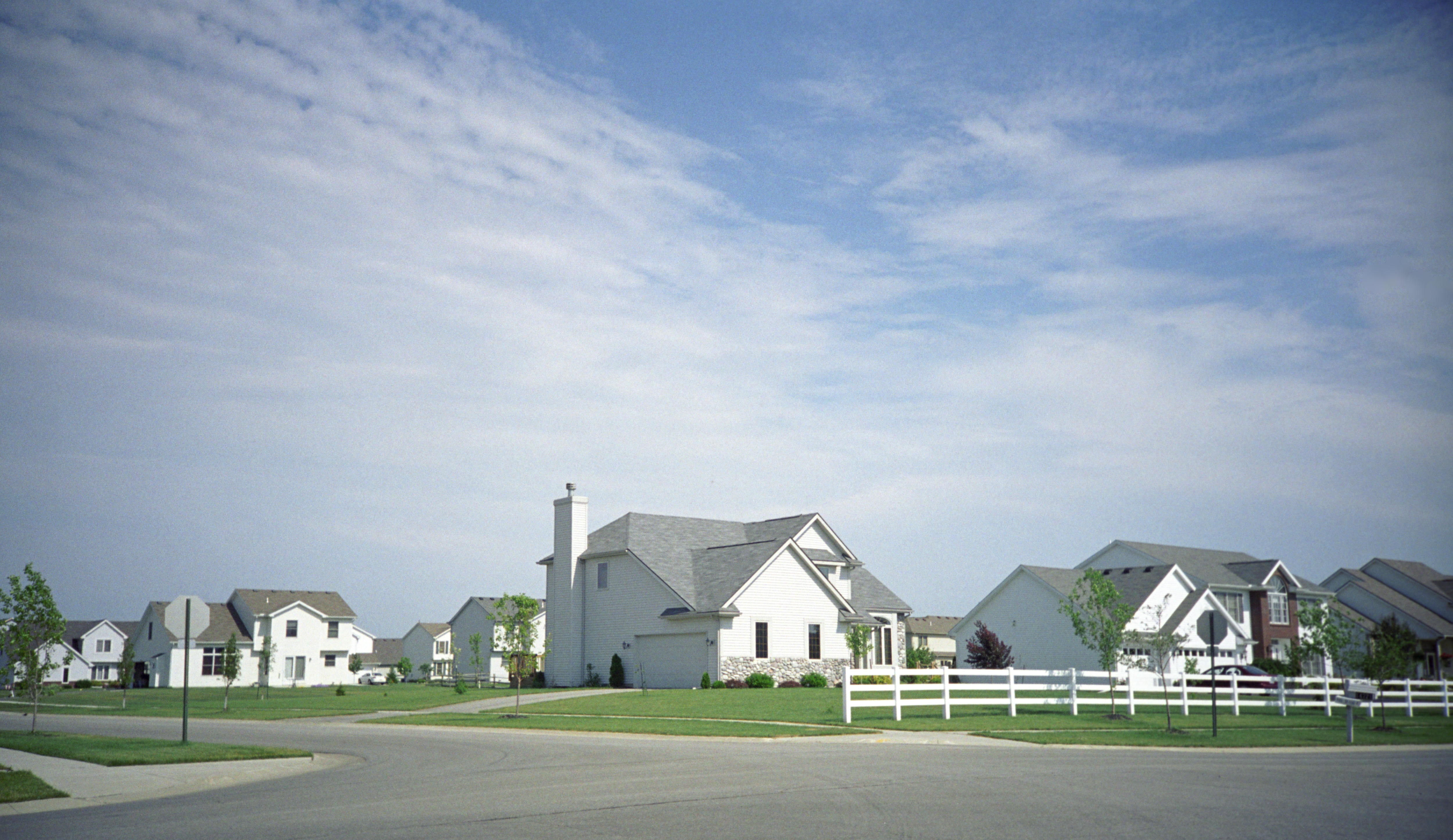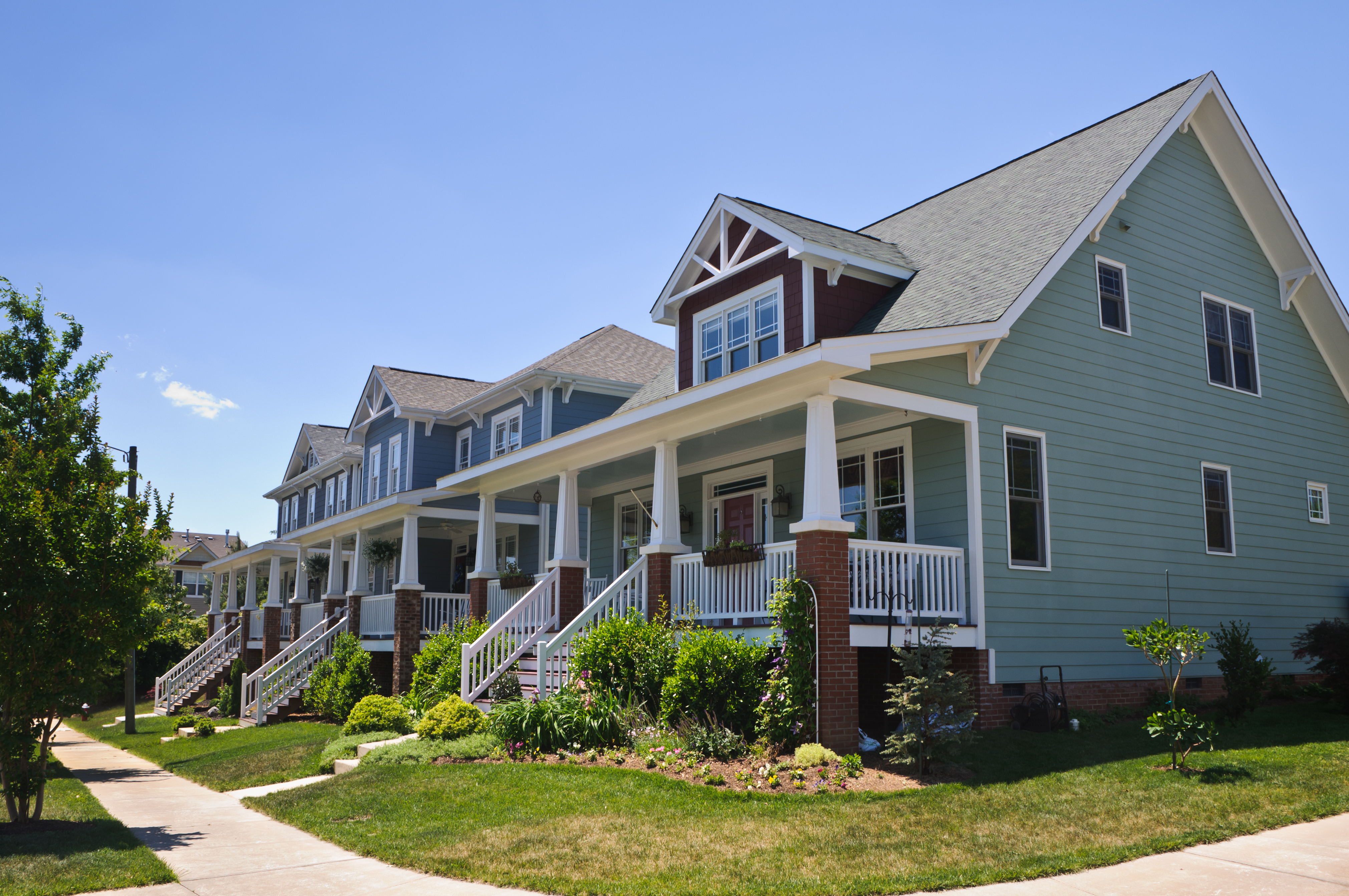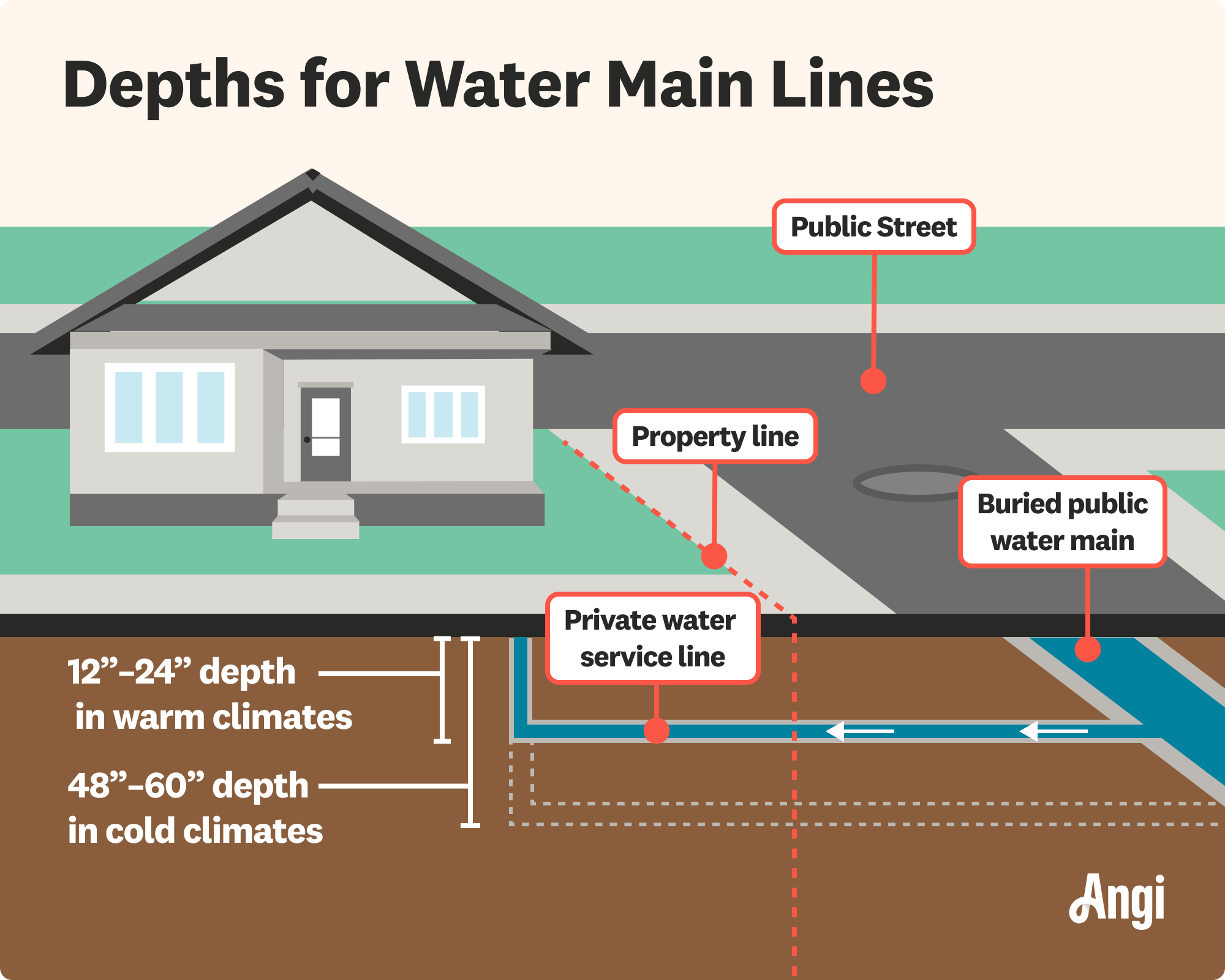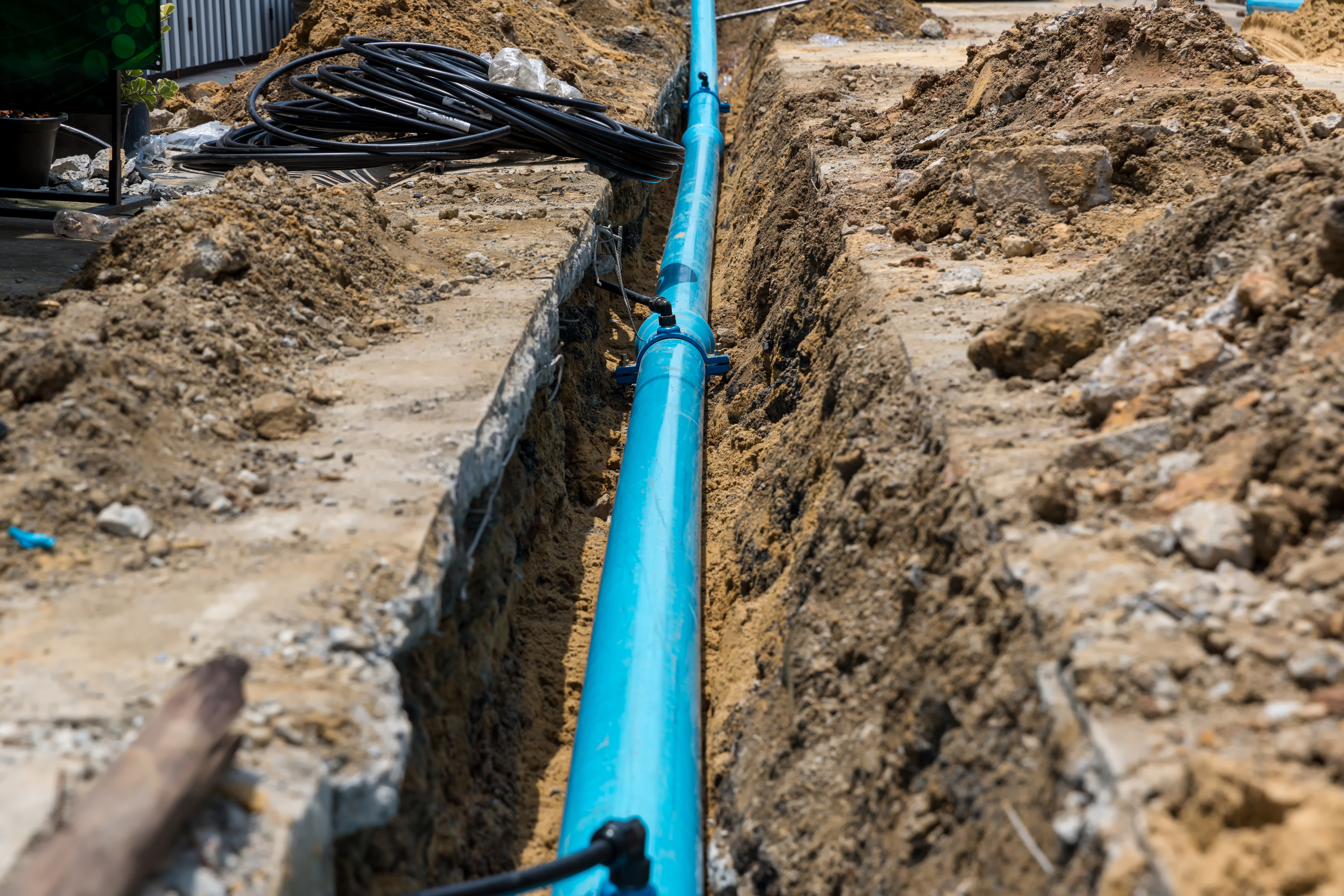
Discover the leading factors affecting your main water line replacement cost in Columbus, including length, material selection, and installation details.
The average cost of a main water line repair in Raleigh, NC, is $543, with most homeowners spending between $302 and $824. However, depending on the severity of the damage, the type of pipe material, and potential accessibility issues, repairs can range from $220 to $1,500


Raleigh’s clay-heavy soil and freeze-thaw cycles can increase the risk of pipe damage.
Permit and inspection fees in Raleigh typically range from $50 to $200.
Trenchless repair options are available and may cost between $1,000 and $1,500.
Most homeowners in Raleigh spend between $302 and $824, depending on the scope of the repair and the accessibility of the water line. Deep excavation or older, corroded piping tends to drive costs upward. The average cost of main water line repairs nationally is $989, while the average cost to replace a water main line entirely is just over $1,700, so Raleigh residents tend to pay below-average rates for this type of work.

The cost of main water line repair in Raleigh depends on more than just the size of the leak. Factors like the age of your home, type of pipe material, depth of the line, and soil conditions all influence how complex—and costly—the job will be. Below, we break down the factors that impact your final price.
Not all causes of water main breaks are created equal. Simple joint fixes or sealing small cracks are on the lower end of the cost range. But full ruptures, collapse from shifting soil, or root intrusion can make the project far more complex.
In older Raleigh neighborhoods, such as Oakwood or Mordecai, water lines installed decades ago may be corroded or clogged with mineral deposits—meaning entire sections may need to be replaced. In newer communities, such as Brier Creek or Wakefield, line failures are more likely to involve mechanical connections or stress fractures caused by soil movement.
In Raleigh, pre-1970 homes are more likely to have copper or even galvanized steel pipes, which are costly to repair or replace and prone to damage from acidic clay soils. Newer homes—especially those built after 2000—typically use PEX or PVC, which are less expensive to repair and more flexible when installed in clay-heavy soil. If your property has aging metal lines, your plumber may recommend full replacement instead of repeated repairs.
| Material | Cost Impact | Pros | Cons |
|---|---|---|---|
| PVC | Low | Affordable, corrosion-resistant | Can crack under extreme pressure |
| Copper | High | Durable, long-lasting | Expensive, can corrode |
| PEX | Moderate | Flexible, easy to install | May degrade in UV or extreme heat |

Water line depth varies widely across Raleigh. In historic districts, older homes often have shallower lines that pre-date today’s frost-depth codes, making them more vulnerable to freeze-thaw cycles in winter and early spring.
In clay-heavy soils, such as those found in Five Points or Glenwood South, shifting ground can cause stress fractures even on deeper lines. If pipes run under driveways, retaining walls, or large trees, excavation becomes more complex and can easily double labor costs.
Homes built under modern codes in suburban Raleigh developments tend to have deeper, sleeved lines, which are more resistant to frost but may require heavier equipment to reach if repairs are needed.
Trenchless repair methods, such as pipe lining or bursting, tend to cost more upfront but can save money overall by avoiding the need to restore driveways, patios, fences, or mature landscaping. In Raleigh’s older neighborhoods, with their large trees and established yards, trenchless methods can help preserve property values.
Traditional excavation (dig and replace) remains common in newer subdivisions with open yards and fewer obstacles. It’s typically less expensive per linear foot but requires more post-repair restoration.
In Raleigh, any repair, connection, or replacement of a main water line requires permits and inspections from the city. For a typical residential project, homeowners can expect to pay at least $328 in permit and inspection fees.
Required permits and inspections generally include:
| Permit / Inspection Type | Cost |
|---|---|
| Stub permit | $225 |
| Plumbing utility permit | $225 |
| Stub inspection | $103 |
| Plumbing inspection | $103 |
Additional fees apply if the city performs a new water tap—as much as $5,025. Minor repairs generally won’t trigger an extensive plan review. However, larger replacements or unusual construction may require additional plan review fees of $150 or more.
Skipping permits or inspections can result in serious consequences. Homeowners or contractors who alter plumbing without approval are in violation of the city code. Each stage of construction must be inspected and approved. Failure to obtain inspections before proceeding is considered a violation and may result in corrective work, stop-work orders, or even civil penalties. Add who will handle permits and inspections to your list of questions to ask plumbers about water main repairs and installation before making a final hire. Working with an experienced plumber who handles this process helps ensure compliance and avoid delays, rework, and fines.
Raleigh plumbers cost between $45 and $200 per hour, depending on the job’s complexity and timing. Emergency or weekend repairs may carry a premium.
Here’s how to find a plumber who will get the job done right:
Confirm they’re licensed for work in Raleigh
Make sure permitting and inspection scheduling are included
Request a written estimate with a clear timeline
While repairing a main water line won’t directly boost your home’s appraised value, it does protect your property’s overall condition. In fast-growing markets such as Raleigh, where many older homes are being renovated and resold, buyers often ask about plumbing upgrades during inspections. A recent repair (with permits and documentation) can help your home sell faster and avoid last-minute negotiations over plumbing concerns.
Home is the most important place on earth, which is why Angi has helped more than 150 million homeowners transform their houses into homes they adore. To help homeowners with their next project, Angi provides readers with the most accurate cost data and upholds strict editorial standards. We survey real Angi customers about their project costs to develop the pricing data you see, so you can make the best decisions for you and your home. We pair this data with research from reputable sources, including the U.S. Bureau of Labor Statistics, academic journals, market studies, and interviews with industry experts—all to ensure our prices reflect real-world projects.
Want to help us improve our cost data? Send us a recent project quote to [email protected]. Quotes and personal information will not be shared publicly.
From average costs to expert advice, get all the answers you need to get your job done.

Discover the leading factors affecting your main water line replacement cost in Columbus, including length, material selection, and installation details.

A burst pipe is a homeowner’s worst nightmare—but you can get ahead of the potential expense. This guide will help you budget for burst pipe repair costs.

Learn how much plumbers cost in Columbus, Ohio. Discover pricing for faucet repairs, pipe work, and emergency services, plus how you can save money.

Need to stop a plumbing leak quickly and minimize water damage in your home? Buy yourself some time with these temporary fixes for a leaking pipe.

If the temperatures plummet below 20 degrees, you should pay attention to your home’s pipes. Learn what to do if pipes freeze, and how to prevent them from bursting.

Finding frozen pipes involves using all of your senses to listen for, smell, and see the signs. Keep reading to learn how to find frozen pipes in your home.